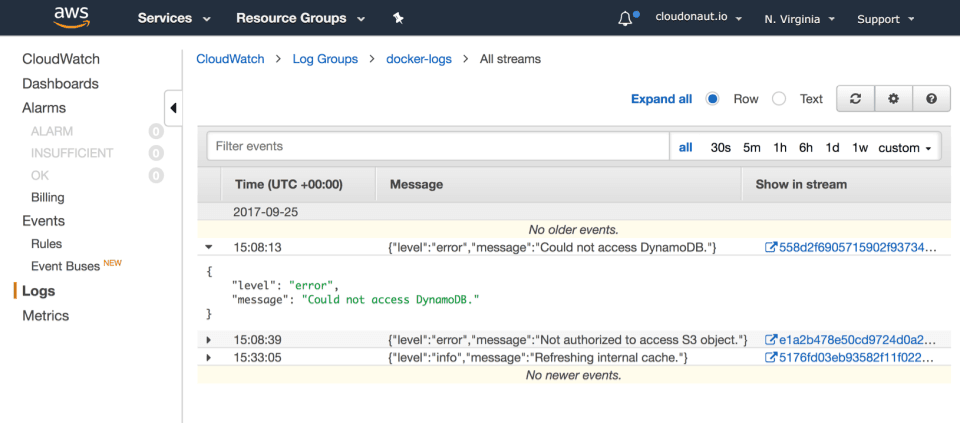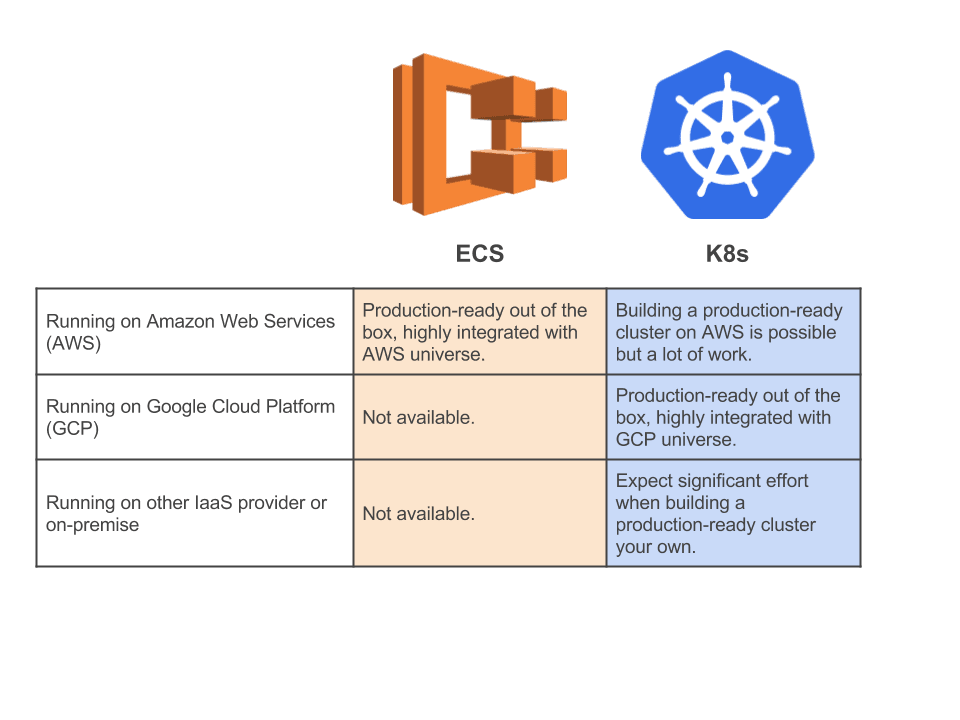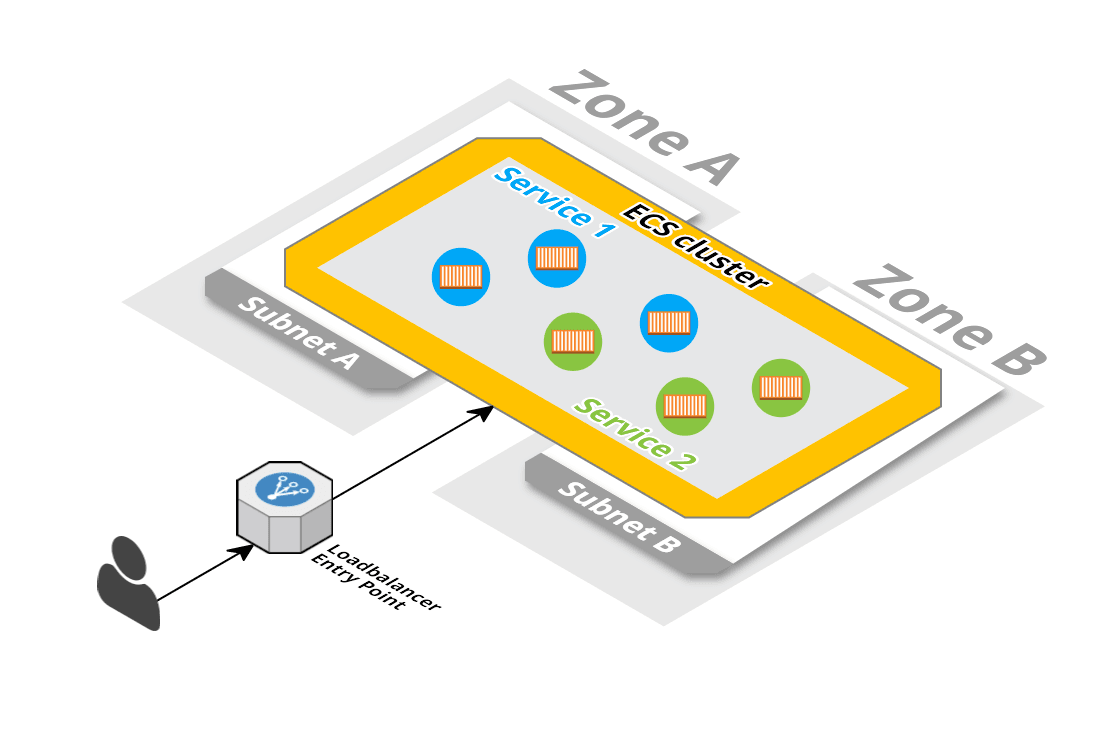#container | Container (2)
Ship your applications in a standarized and reliable way with the help of containers. Covers ECS, EKS, and Fargate.
Dockerizing legacy applications with confd
A legacy application typically uses files to read configuration parameters. But working with configuration files is cumbersome when building Docker images for the use with ECS (EC2 or Fargate). In theory, you could copy configuration files to the EC2 in...
Read moreMore than 25 SSL certificates with ECS
Both the Application Load Balancer (ALB) and the Network Load Balancer (NLB) provide TLS/HTTPS listeners allowing you to encrypt the data in transit from the clients to your cloud infrastructure. Together, with the Amazon Certificate Manager (ACM) which...
Read moreThree ways to run Docker on AWS
There are a bunch of different ways to run your containerized workloads on AWS. This blog post compares the three most important ways to run Docker on AWS: Amazon Elastic Container Service (ECS) with AWS Fargate Amazon Elastic Container Service for Kub...
Read moreFargate networking 101
Fargate runs Docker containers on AWS. ECS is responsible for orchestrating the containers that Fargate runs. If you are new to Fargate, I recommend you to read: ECS vs. Fargate: What’s the difference?. ECS and Fargate offer deep integration with other ...
Read moreECS vs. Fargate: What's the difference?
When discussing options to run Docker on AWS, I’m often asked about the differences between ECS and EKS or Kubernets. However, lately, a new question arises: What’s the difference between ECS and AWS Fargate? In this blog post, you get the answer. You a...
Read moreFargate is ready for prime time, and we share our CloudFormation templates
The recent AWS Fargate Price Reduction (up to 50%) is the last piece in the puzzle to call Fargate a reasonable choice for running Docker workloads on AWS. The CIO perspective is as simple as this: you provide the Docker image and scaling rules, Fargate...
Read moreEKS vs. ECS: orchestrating containers on AWS
AWS announced Kubernetes-as-a-Service at re:Invent in November 2017: Elastic Container Service for Kubernetes (EKS). Since yesterday, EKS is generally available. I discussed ECS vs. Kubernetes before EKS was a thing. Therefore, I’d like to take a second...
Read moreA simple way to manage log messages from containers: CloudWatch Logs
Gone are the days when administrators logged into their machines to access log files. Containers and virtual machines are launched and terminated dynamically to scale based on demand, to deploy new versions, or to recover from failure nowadays. Collecti...
Read moreECS vs. Kubernetes: same same but different
EC2 Container Service (ECS) and Kubernetes (K8s) are solving the same problem: managing containers across a cluster of hosts. The battle between ECS and Kubernetes reminds me of the editor war between vi and Emacs: heated discussions focusing on technic...
Read moreAWS Velocity Series: Containerized ECS based app CI/CD pipeline
In the previous article, you learned how to use CloudFormation to describe a production-ready infrastructure for a containerized app running on ECS. In this article you will learn to: Automate the creation of a Docker image that contains the app Deploy...
Read moreAWS Velocity Series: Containerized ECS based app infrastructure
EC2 Container Service (ECS) is a highly scalable, fast, container management service that makes it easy to run, stop, and manage Docker containers on a cluster of Amazon EC2 instances. To run an application on ECS, you need the following components: Do...
Read moreAWS Velocity Series: Running your application
There are many options when it comes to running an application on AWS. EC2 based, containerized, or serverless. Choosing the best option for your specific use case is important. All options that I present are what I call production-ready: Highly availa...
Read more









